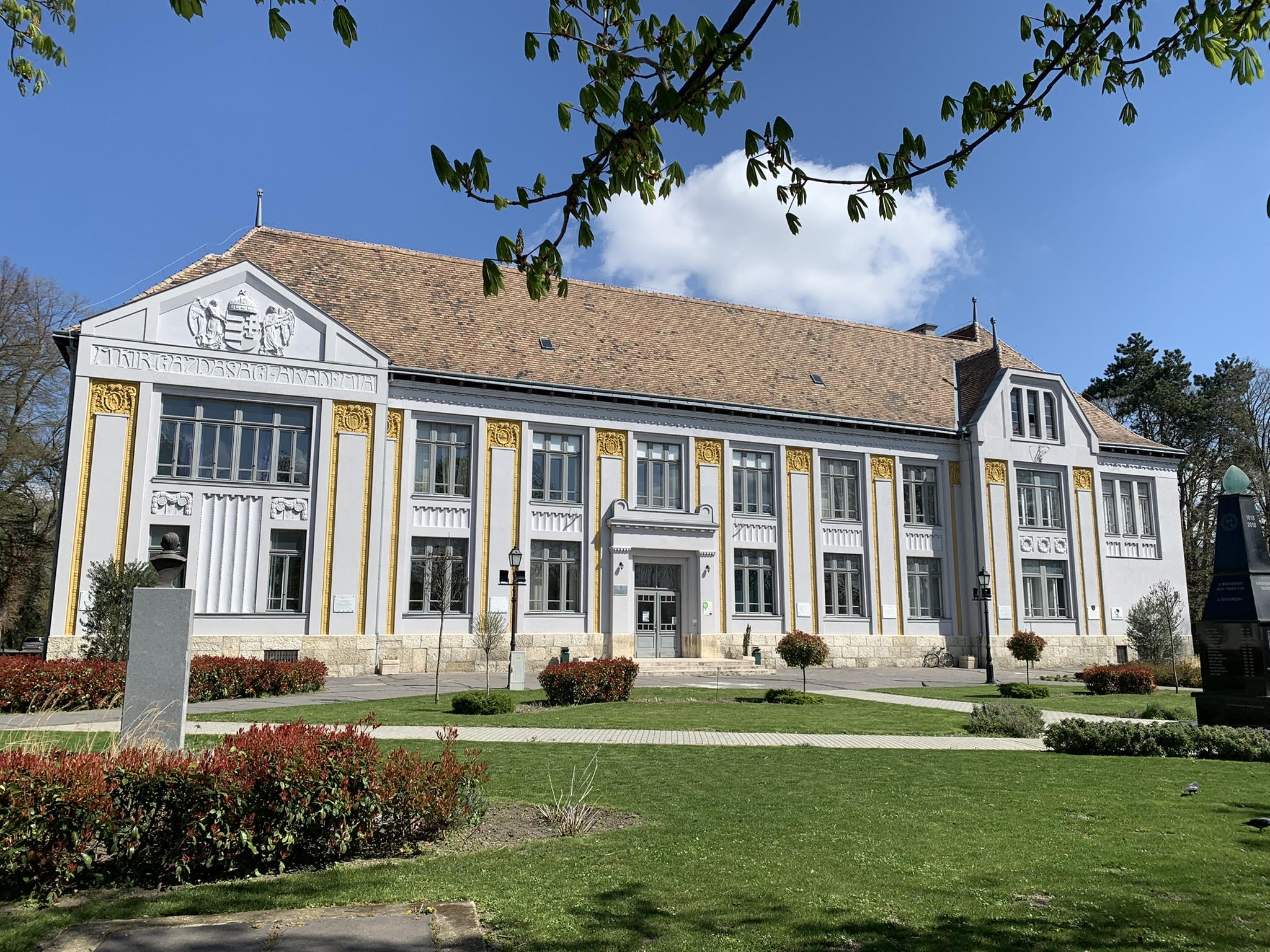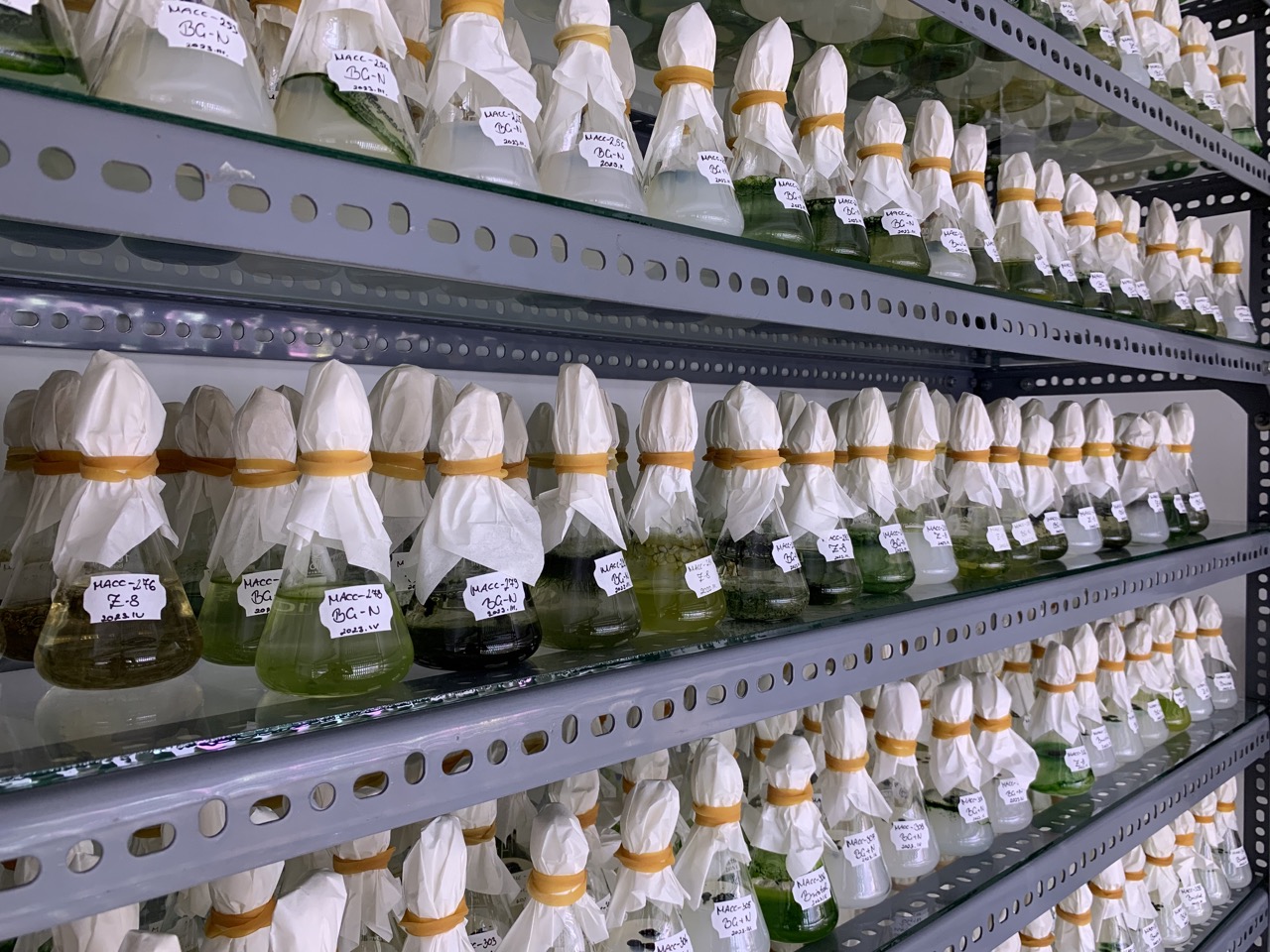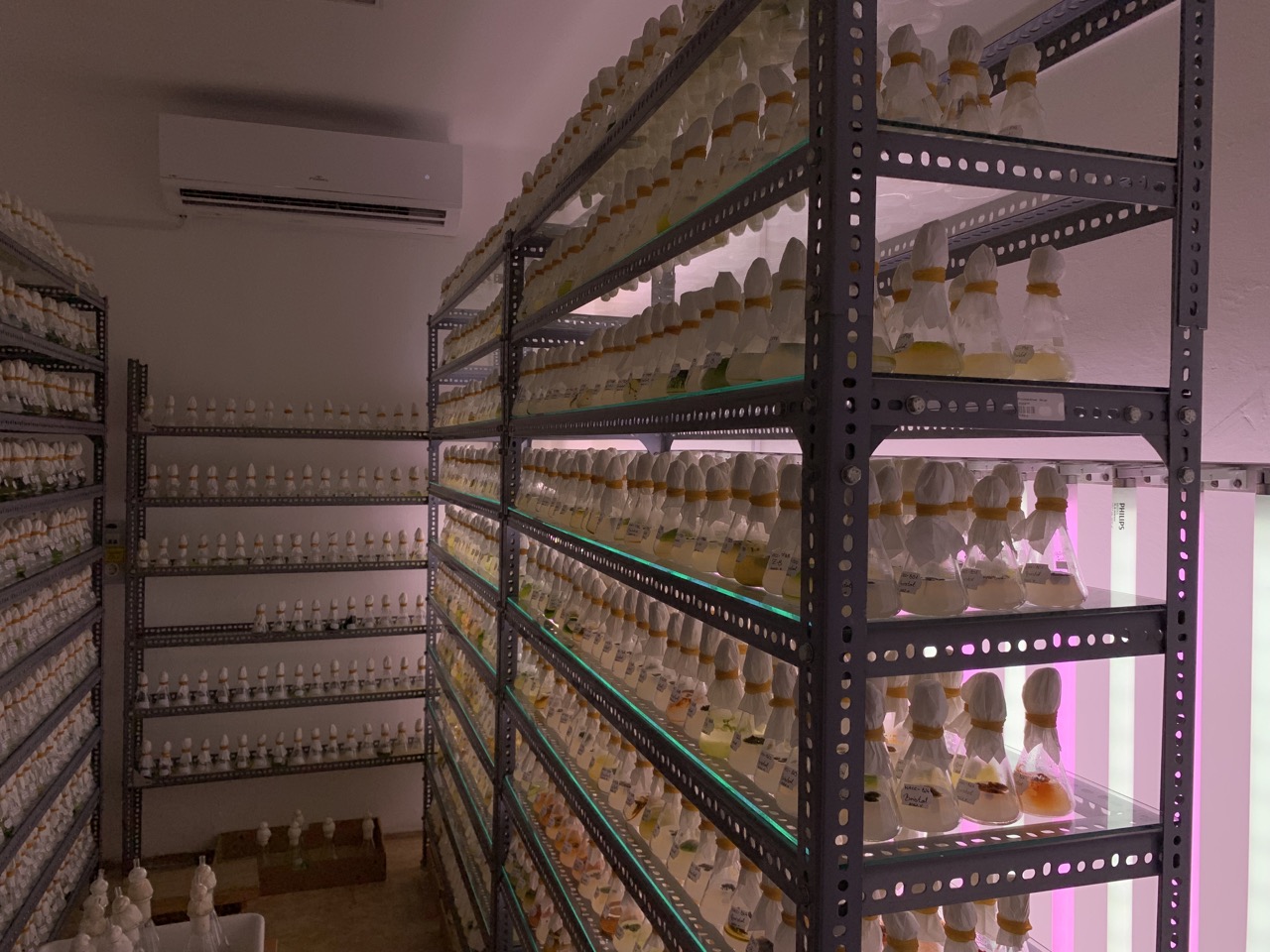Department of Plant Sciences
Welcome to the Department of Plant Sciences
 The Department of Plant Sciences as an organisational unit has undergone several transformations over the past decades. In 1987, the Institute of Plant Production (Director: Prof. Dr. Géza Kuroli CSc) started to operate as an independent Institute with the following departments: Department of Horticulture, Department of Botany and Plant Biology, Department of Plant Production, Department of Plant Protection. In the mid-1990s, under the directorship of Prof. Dr. Vince Ördög DSc, the Institute was extended with the following departments: Department of Pedology, Department of Genetics and Plant Breeding, Department of Plant Physiology and Plant Biotechnology. At that time, the Institute also included a Central Laboratory and a Experimental Station for Breeding and Crop Production Technology. In the 2000s, the Department of Herbs Production was established and since 2005 it has continued its activities as the Institute of Plant Sciences. With the accession to the Széchenyi István University, on 1 January 2016, the Department of Plant Sciences was established, led by Dr. Zoltán Molnár PhD.
The Department of Plant Sciences as an organisational unit has undergone several transformations over the past decades. In 1987, the Institute of Plant Production (Director: Prof. Dr. Géza Kuroli CSc) started to operate as an independent Institute with the following departments: Department of Horticulture, Department of Botany and Plant Biology, Department of Plant Production, Department of Plant Protection. In the mid-1990s, under the directorship of Prof. Dr. Vince Ördög DSc, the Institute was extended with the following departments: Department of Pedology, Department of Genetics and Plant Breeding, Department of Plant Physiology and Plant Biotechnology. At that time, the Institute also included a Central Laboratory and a Experimental Station for Breeding and Crop Production Technology. In the 2000s, the Department of Herbs Production was established and since 2005 it has continued its activities as the Institute of Plant Sciences. With the accession to the Széchenyi István University, on 1 January 2016, the Department of Plant Sciences was established, led by Dr. Zoltán Molnár PhD.
 The staff of the Department, which was created through the transformations following the concept ”From field to fork”, are currently working on the agronomic analysis of soils, the cultivation technology of arable and horticultural crops, with emphasis on the possibilities of precision farming, and the plant conditioning effect of natural substances. Applied research in plant protection and plant physiology (plant biology) will complement the previous work. The Department's collection of about a thousand cyanobacteria and microalgae strains (Mosonmagyaróvár Algal Culture Collection, MACC) is unique in Hungary. The Department has been engaged in in vitro plant cell and tissue culture since 1986 and has a laboratory background for plant biology research. The Department is responsible for the professional supervision of crop production research in the 515 ha farm of the Albert Kázmér Agricultural Faculty, Mosonmagyaróvár. Technological research is mainly related to cereal crops, including the study of varieties of different importance, crop protection, nutrient supply and soil cultivation experiments. Among the crop protection research, research on weeds and herbology plays a special role. In view of the changing conditions of crop production (climate, production structure, herbicide supply, resistance, tolerance), emphasis will be put on weed ecology. With the plant molecular biology laboratory background of the ELKH-SZE PhatoPlant-Lab Research Group, we work in partnership with the Institute of Plant Protection of the ELKH Agricultural Research Centre to achieve our research objectives.
The staff of the Department, which was created through the transformations following the concept ”From field to fork”, are currently working on the agronomic analysis of soils, the cultivation technology of arable and horticultural crops, with emphasis on the possibilities of precision farming, and the plant conditioning effect of natural substances. Applied research in plant protection and plant physiology (plant biology) will complement the previous work. The Department's collection of about a thousand cyanobacteria and microalgae strains (Mosonmagyaróvár Algal Culture Collection, MACC) is unique in Hungary. The Department has been engaged in in vitro plant cell and tissue culture since 1986 and has a laboratory background for plant biology research. The Department is responsible for the professional supervision of crop production research in the 515 ha farm of the Albert Kázmér Agricultural Faculty, Mosonmagyaróvár. Technological research is mainly related to cereal crops, including the study of varieties of different importance, crop protection, nutrient supply and soil cultivation experiments. Among the crop protection research, research on weeds and herbology plays a special role. In view of the changing conditions of crop production (climate, production structure, herbicide supply, resistance, tolerance), emphasis will be put on weed ecology. With the plant molecular biology laboratory background of the ELKH-SZE PhatoPlant-Lab Research Group, we work in partnership with the Institute of Plant Protection of the ELKH Agricultural Research Centre to achieve our research objectives. We investigate organisms, mainly viruses, but also other plant pathogens, which have been identified in Hungary but are currently uncharacterised, are becoming dominant and potentially cause serious plant protection problems. In developing technologies for direct field application (so-called "loop mediated isothermal amplification"), we are using a technology that can be a rapid, non-laboratory based and efficient solution. The impact on plant growth and development of micro-organisms (microalgae, cyanobacteria), either present in the plant-soil system or artificially applied, and of natural compounds from higher plants will be investigated, complemented by an assessment of the impact on environmental changes (in particular pathogens). Research on insect biology is carried out within the framework of the PhD programme. The main focus is on non-chemical plant protection solutions that can be applied in organic farming. Horticultural research within the Department is mainly related to pear production in Hungary and includes the study of cultivars and cultivation methods. We have also started to investigate the ecological cultivation of greenhouse-grown, hydroponic cocktail tomatoes.
We investigate organisms, mainly viruses, but also other plant pathogens, which have been identified in Hungary but are currently uncharacterised, are becoming dominant and potentially cause serious plant protection problems. In developing technologies for direct field application (so-called "loop mediated isothermal amplification"), we are using a technology that can be a rapid, non-laboratory based and efficient solution. The impact on plant growth and development of micro-organisms (microalgae, cyanobacteria), either present in the plant-soil system or artificially applied, and of natural compounds from higher plants will be investigated, complemented by an assessment of the impact on environmental changes (in particular pathogens). Research on insect biology is carried out within the framework of the PhD programme. The main focus is on non-chemical plant protection solutions that can be applied in organic farming. Horticultural research within the Department is mainly related to pear production in Hungary and includes the study of cultivars and cultivation methods. We have also started to investigate the ecological cultivation of greenhouse-grown, hydroponic cocktail tomatoes.
